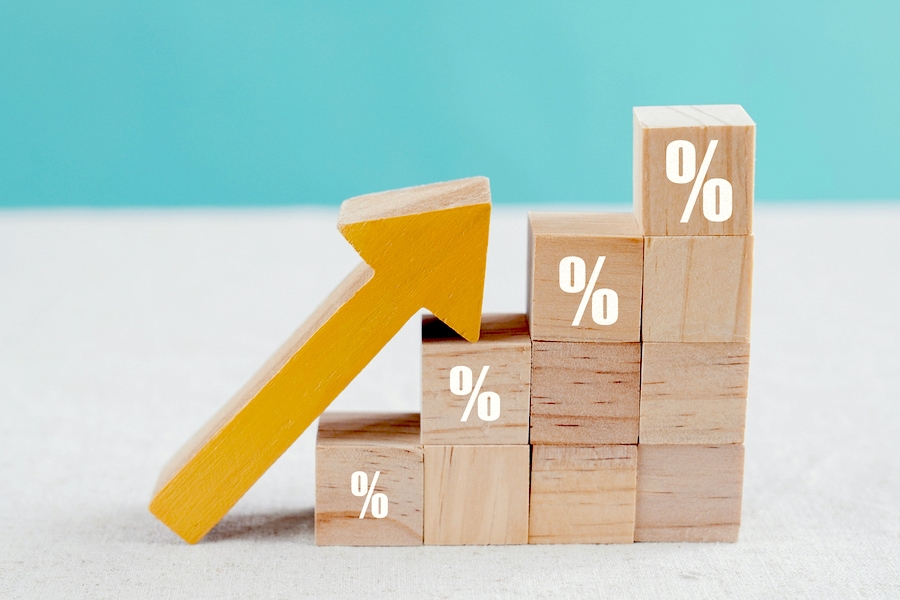
Buying a condo can be a great first step for homebuyers on their path to a bigger home. Generally, buying a condo is a smart move for first-time homebuyers and investors alike but with mortgage rates rising, the decision isn’t as clear cut right now. Condos often have smaller price tags which makes them attractive for anyone on the path to homeownership, require less maintenance, and can often be turned into a rental property when you’re ready to buy a bigger home.
For first-time homebuyers, buying a condo can put you on a faster path to homeownership, with an affordable mortgage and a low-maintenance property. For homeowners ready to invest in a second property, buying a condo in 2022 can help build wealth and financial security through rental income and home equity.
Nevertheless, rates are rising. This article can help you ask the right questions to discover if buying a condo is a smart move right now.
5 Questions to Answer Before Buying a Condo in 2022
Whether you’re a first-time homebuyer or a current homeowner thinking about investing in a second property, these five steps can help guide the process.
When you find your dream home, the last thing you want is to watch your loan fall through after you’ve made a competitive offer. Start here.
1. Will a condo meet your financial goals and fit your lifestyle?
Buying a condo in 2022 could be a smart move to build financial security, but it’s worth thinking about balance and lifestyle. If this will be your primary residence, consider the benefits. Condos offer the opportunity to live in a close community with your neighbors along with shared amenities such as a pool, tennis courts or a fitness gym. In addition, condos provide a low-maintenance property while someone else maintains the landscaping and grounds.
On the other hand, if you love backyard entertaining or gardening, buying a condo might not be the best fit. Check with the HOA to determine what types of restrictions they may have. Many HOAs have regulations for overnight guests, pets, parking and more.
As an investor, are you ready to become a landlord? You can hire a property management company or manage the property yourself. Consider how you’ll manage ongoing maintenance and any issues that arise with tenants. Look at vacancy rates in the area and factor in the competition. The last thing you want is a mortgage and no tenant.
2. Can you partner with an experienced realtor who knows the area?
Buying a condo in 2022 is different than buying a single-family home. Be sure to work with an experienced real estate agent who specializes in condominiums and townhouses. They will often have better advice and be a strong asset when you’re ready to make an offer. They’ll know the trends in the area including vacancy rates and which complexes are renter-friendly, better for investors, or better as a primary residence.
A qualified real estate agent will know the resale values in the area and which condominium developments offer the best value in your price range. They will also know about any HOA issues, maintenance problems, or infrastructure issues that have come up in particular developments.
Check out this mortgage calculator to see how much you can afford
3. Are the HOA fees and any special assessments comparable for the area?
Whether this will be your primary residence, or if you’re buying a condo in 2022 as an investment, take the cost of HOA fees into account. These fees are ongoing and will be on top of your mortgage and property taxes.
HOA (homeowner association) dues are often paid monthly or quarterly when you buy a condo. The fees are established by the HOA and are typically used to cover ongoing maintenance for all shared grounds, parking structures, amenities, landscaping, and shared community spaces.
That said, HOA fees vary widely across condos. Compare the HOA fees with other condos in the area to evaluate if the fees are worth the cost. Does the condo have the amenities that are important to you (accessible parking, fitness center, children’s park, pool or tennis courts, etc.) Find out what the HOA fees cover and what they do not.
Find a local mortgage advisor in your area who can help with custom loans
4. What are the rental policies for the condominium development?
Knowing the rental policies is important when you buy a condo.
Even if this will be your primary residence, you may want to rent the property after a few years. On the other hand, maybe you want to live in a condo development with few renters. Will it lower your resale value if most units are rental properties with short-term tenants?
As an investor, you’ll want to ask if there are any restrictions about renting the condo for 2022. Often the HOA will place restrictions on the number of rental units allowed and other restrictions.
5. Do you have access to custom financing and the best mortgage rate?
Financing a condo is different than applying for a single-family home mortgage. Mortgage lenders have some regulations that are unique to buying a condo. As a result, there can be obstacles along the way that make it more difficult to get approved quickly.
Ask your mortgage advisor for a quick list of documentation you’ll need to help keep things on track.
Be prepared with a 20% down payment if possible and all your documentation in order. If you’re planning on a lower down payment, ask about an FHA loan. FHA loans are easier to qualify for, but they have stricter requirements for condo developments. For example, FHA loans require that at least 80% of the condos are owner-occupied. FHA loans also require a stricter inspection process, including the overall development and grounds in addition to the specific condo unit you want to buy.
If you’re self-employed or plan to qualify using non-standard income, your advisor can talk with you about additional information that will be required.
Related: Boost your credit score in less than 60 days
Finally, get pre-approved to secure the lowest mortgage rate available.
Typically, a qualified borrower can get a mortgage pre-approval letter in just a few days. Depending on your situation, it might take a bit longer, which is why it’s wise to start early.
Connect with a local mortgage advisor so you can make sure all your documentation is in order. If you have good credit and verifiable income, getting pre-approved for a mortgage is a quick process.
If you have a financial situation that is less common, getting pre-approved for a mortgage is even more important, so you aren’t faced with holdups when you’re ready to make an offer. A qualified mortgage advisor can keep things moving quickly.
Once you’ve got your mortgage pre-approval letter, it’s time to make those offers!
Taking Action
If you’re ready to buy a condo, getting pre-approved can put you on the fast track to homeownership at the best mortgage rate. Whether you are a first-time homebuyer or a homeowner ready to invest in a second property, we can help you secure your best mortgage and keep your mortgage payment affordable. Connect with a local mortgage advisor to discuss your loan options and build financial security. We’d love to help.








